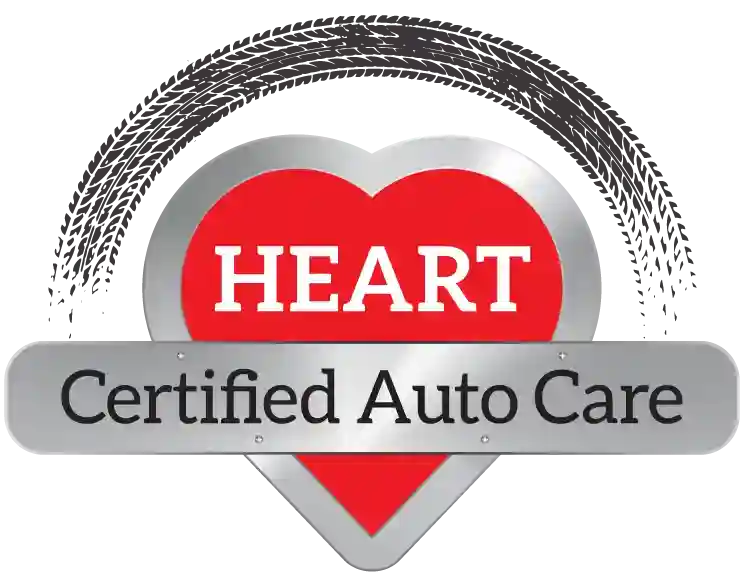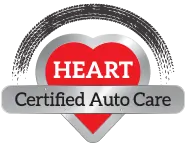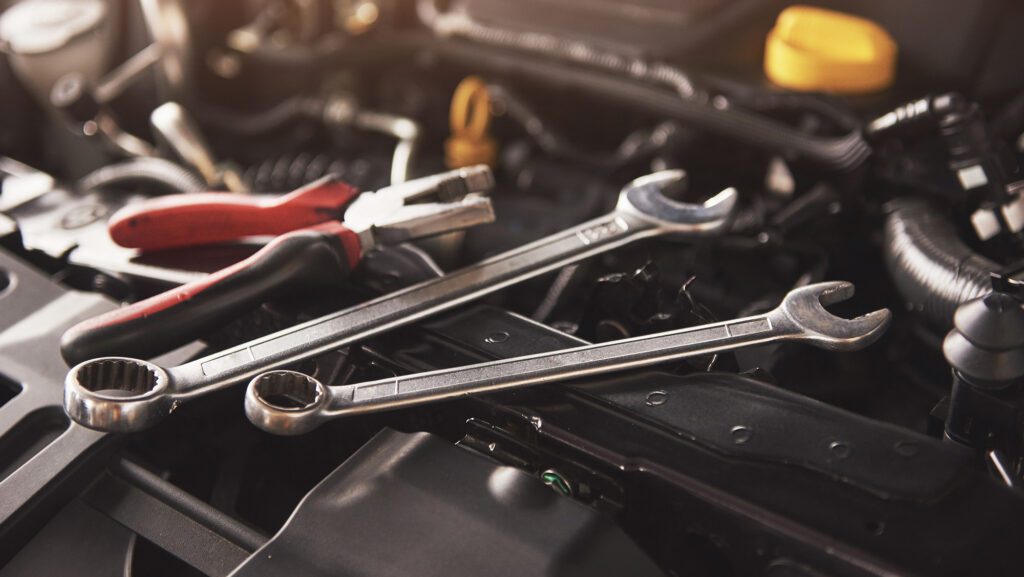Whether you enjoy driving or not, car maintenance is an essential part of having a car. It’s not just about making sure your car looks good or is running smoothly. There are safety concerns, financial investments, and environmental factors that make maintaining a vehicle a necessity. In this guide, we’ll focus on the importance of a car maintenance checklist.
Why Car Maintenance Is Important?
The importance of car maintenance goes beyond extending the life of your vehicle. Regular maintenance helps to ensure safety, efficiency, and reliability. Neglecting routine maintenance can lead to expensive repairs or, even worse, an accident. By making sure your car is well-maintained, you can have peace of mind knowing that you and your passengers are safe on the road.
One of the best ways to stay on top of car maintenance is by following a checklist. Having a checklist ensures that you don’t forget crucial tasks, like checking your brakes or replacing your oil. By breaking down tasks into smaller, manageable items, a checklist makes the process of car maintenance less daunting. It also helps to prioritize tasks and make sure that you’re not missing anything.
In the next section, we’ll provide an easy-to-follow car maintenance checklist that covers all the essentials.
Basic Car Maintenance Checklist
Following a car maintenance checklist is the best way to stay on top of your vehicle’s maintenance needs. Here’s a basic car maintenance checklist that covers all the essentials:
- Engine Oil: Regularly checking your engine oil levels and changing the oil as needed is essential to keep your car running smoothly. Dirty or low engine oil can reduce your car’s performance and cause damage to its internal parts.
- Fluid Levels: It’s essential to check all your car’s fluids regularly. From coolant to brake fluid, and power steering fluid, these fluids play crucial roles in keeping your car running smoothly. Keeping an eye on these levels can protect the engine and other internal parts of the car.
- Battery Check: A dead battery is never a good thing, especially during a long drive. Regular battery checks to test its capacity are a must. A battery with low voltage can cause problems for the entire car’s electrical system.
- Brake Inspection: Your car’s brakes are one of its most essential safety features. Inspecting your brake pads, calipers, and rotors regularly can prevent unwanted situations on the road. Replacing your brake pads on time can save you money on expensive repairs.
- Tire Maintenance: Checking your tire pressure, getting regular tire rotations, and alignment checks help to ensure that you have a smooth and safe ride. Properly inflated tires enhance fuel efficiency and handling.
- Air Filter Replacement: Replacing your air filter can improve your car’s performance and prevent expensive repairs. Dirty or clogged air filters can lead to issues in a car’s internal systems
- Wiper Blade Replacement: Don’t forget to replace your wiper blades. Wipers blades become brittle over time and start leaving streaks. Damaged windshield wipers can hinder your visibility on the road, making driving difficult and dangerous.
Incorporating these basic maintenance practices into your car maintenance checklist can avoid costly repairs and keep your car running for longer.
Monthly Car Maintenance Checklist
Following a car maintenance checklist is crucial to keep your car running smoothly. By dividing tasks into smaller, manageable items, you can ensure that you never forget any tasks. Here is our monthly car maintenance checklist:
- Checking Engine Oil Level: Make sure you check your engine’s oil level at least once a month to ensure it is at the right level. Low oil levels can damage your engine, while dirty oil can diminish its performance.
- Checking Coolant Level: Your car can overheat if there isn’t enough coolant to dissipate the heat generated by the engine. Check your coolant level once a month and top up if necessary.
- Inspecting Tires for Wear and Tear: Take a close look at your tires once a month to check for any signs of wear and tear. Worn out tires can be dangerous, especially in wet or icy conditions.
- Checking Wiper Blades for Damage: Damaged wiper blades can hinder your view of the road, making driving difficult and dangerous. Check your wiper blades once a month and replace them if necessary.
- Checking Brake Fluid Level: Brake fluid is critical to your car’s brake system. Check your brake fluid level once a month and top up if necessary. A low brake fluid level can be a sign of a leak or a brake system problem.
- Checking Power Steering Fluid Level: Your car’s power steering system is responsible for making steering easy and smooth. Check your power steering fluid level once a month and top up if necessary.
Following these monthly car maintenance practices helps identify issues early on before they turn into significant and expensive problems.
Quarterly Car Maintenance Checklist
As we move further from daily, monthly car maintenance checks, it’s essential to focus on the quarterly car maintenance checklist. Here are the essential quarterly car maintenance checks:
- Changing Engine Oil and Oil Filter: Changing your engine oil and oil filter once every three months is ideal to keep the engine in top shape. Fresh oil helps lubricate the engine better, and the oil filter ensures that contaminants do not buildup within the engine.
- Replacing Air Filter: Replacing the air filter every three months ensures that the engine receives clean air to perform at its best. A dirty or clogged air filter will negatively impact engine performance.
- Rotating Tires: Regular tire rotation ensures even tire wear and extends tire life. It’s best to rotate tires every six months or every 7,500 miles (12,000 km).
- Checking Battery Terminals and Cables for Corrosion: Corrosion can hinder the electrical flow in the battery and result in a dead battery. Check terminals and cables every three months for any corrosion and clean them appropriately.
- Inspecting Brake Pads and Shoes: Worn-out brake pads and shoes reduce stopping power and can lead to accidents. Inspect brake pads and shoes every three months and replace them if necessary.
- Checking Steering and Suspension Components: Checking the steering and suspension components of your car every three months ensure that they are working correctly and not causing any safety issues.
Completing these quarterly car maintenance tasks helps your vehicle perform at its best and increases its lifespan. A well-maintained car is safer, more efficient, and less costly to maintain.
Annual Car Maintenance Tasks
Not all maintenance tasks are the same. Some car maintenance tasks are fundamental and require daily, weekly, or monthly checks. Still, others like annual maintenance tasks focus on parts that require replacement instead of minor checks. Here are the annual car maintenance tasks:
- Replacing Spark Plugs: Worn-out spark plugs can negatively impact the engine’s performance, making it less efficient. Replacing spark plugs every 30,000 miles (48,000 km) or as recommended by the manufacturer can improve fuel efficiency.
- Replacing Timing Belt: The timing belt connects the engine’s crankshaft and camshaft, ensuring that the valves and pistons work together at the right time. Replacing timing belts every 60,000-100,000 miles (96,500-160,000 km) or as recommended by the manufacturer is crucial to preventing severe engine damage.
- Flushing Cooling System: The cooling system uses antifreeze to absorb heat generated by the engine. The antifreeze becomes less effective over time, and the cooling system can become clogged. Flushing the cooling system every 50,000 miles (80,500 km) or as recommended by the manufacturer is essential.
- Inspecting Fuel System: A clogged fuel system can negatively impact your car’s performance and reduce fuel efficiency. Inspecting the fuel system once a year and cleaning it if necessary can improve vehicle performance.
- Inspecting Exhaust System: The exhaust system reduces emissions and noise from the engine. Inspecting the exhaust system for leaks, damage, or worn-out parts is crucial for safety and proper functioning.
- Inspecting Belts and Hoses: Belts and hoses in your car play vital roles in the car’s proper functioning. Inspecting them regularly and replacing them every four to six years depending on the manufacturer’s recommendations or what your mechanic suggests is essential.
Completing these annual maintenance tasks ensures that your car is running efficiently. It also prolongs its life by keeping all mechanical systems functioning as they should.
Bottom Line
Car maintenance can seem like a daunting task, but following a car maintenance checklist makes things easier. Regular car maintenance keeps your car running smoothly, extends its life, and ensures your safety on the road.
Here’s a quick recap of the essential, monthly, quarterly, and annual maintenance tasks to keep in mind:
- Change engine oil and oil filter regularly
- Inspect tires for wear and tear
- Check battery terminals and cables for corrosion
- Replace air filter
- Rotate tires every six months
- Flush cooling system once a year
- Inspect fuel system annually
- Inspect exhaust system annually
- Inspect belts and hoses every four to six years
- Replace spark plugs every 30,000 miles (48,000 km)
- Replace timing belt every 60,000-100,000 miles (96,500-160,000 km)
By using this car maintenance checklist regularly, you can avoid costly repairs and prolong your vehicle’s life. Neglecting regular car maintenance can lead to accidents, expensive repairs, and a shorter lifespan for your vehicle.
So, whether you’re a car enthusiast or just want to keep your car moving for as long as possible, using this checklist is a great way to keep your car running smoothly.
If you need help keeping your vehicle running at peak performance, let the certified technicians at HEART Auto Care help you. With years of experience and state-of-the-art technology, we are equipped to handle any car maintenance needs you may have. Trust us to keep your car safe, efficient, and reliable on the road. Contact us today to schedule an appointment and experience the difference HEART Auto Care can make in your car maintenance.






